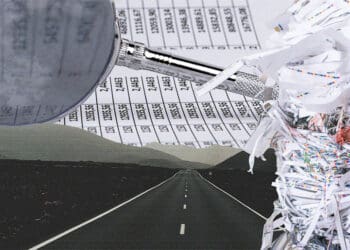Independent directors are directors of incorporated companies who do not have a monetary or material pecuniary relationship with the company. The role of independent directors has evolved with changing regulations to being a sounding board for compliance and a governance watchdog. Independent directors are often criticized for their closeness with the management, even though they may not have moved away from the known and established definition according to regulations. For instance, a promoter’s personal or a company’s social investment in a charity run by the independent director may appear to exhibit alternative influence while not deviating from the regulatory requirements of independence.
Amidst debates of whether independent directors are truly independent, it is essential to look at their responsibilities and what is expected from them in the current environment. Being a non-executive director, an independent director may have limited information visibility. However, he/she is expected to have oversight of innumerable aspects including strategy, financial reporting, governance, risk management, regulatory compliance and growth prospects, among others.
With the recent incidents of regulatory violations – emission scandals, data breaches, leaks and misrepresented facts – expectations from independent directors seem to be increasing considerably. Some of the following factors may raise questions about an independent director’s expansive role as they further complicate external oversight:
- Senior management departure: With today’s startup boom, more executives are moving out of their corporate positions toward an entrepreneurial role or are leaving for personal growth prospects or due to differences in philosophy/strategy with the promoters/owners. The trend of departures of senior management representatives, the timing of events and the long-term impact on the business prospects are key factors that impact the organization.
- Quality and disclosure issues: In the emerging compliance landscape, violations or even suspected violations of the quality and disclosure standards could have an impact on the company’s products and compliance requirements. This may also determine the company’s future opportunities and reputation.
- Customer reach: The number of users and the relevance of reviews for technology or app-based tools are growing. With this, bogus users and falsified reviews are also on the rise and could adversely affect the company’s performance or prospects.
- Secret deals/leaks/exposés: Companies are increasingly being named in leaks and media exposés. These leaks and media exposés explore various aspects of secret or misrepresented deals by the company, senior management or promoters. Some of these deals may have certain multifaceted details that require a series of inquiries and understanding to gather specific facts.
- Predatory pricing/global regulatory claims: Companies that are going global must deal with varied legal complexities. The legal complexities around the pricing mechanism and legal inconsistencies around contract management have a considerable bearing on the company’s prospects and reputation.
Key factors to consider while looking at the expanded responsibilities of independent directors are as follows:
- General capabilities: The independent director’s approach, awareness of the industry and ability to probe for details in board-related conversations.
- Time spent: The time available and spent by the independent director in the key aspects of the business.
- Access to information: The independent director’s access to information and the timing of information availability.
- Independent assurance: The scope and aspects of independent assurance (that the independent director can take comfort from) may not completely cover the aspects related to the above factors. There may be a need to extend independent assurance to certain aspects.
- Current regulatory requirements: The present regulatory environment mandates independent directors to have a view on certain essential elements. The extent of effort made by the independent director to learn, discuss or provide inputs with respect to regulatory compliance becomes relevant.
The compliance penalties, legal costs, personal liabilities and reputational impact faced by independent directors today were uncommon in the past, making the role riskier than ever before. A model that can help independent directors evaluate and manage these risk aspects is in its early stages of development. Given the current regulatory landscape and the evolving role of the independent director, the factors mentioned earlier will soon converge into a collective responsibility of the board, senior management and external assurance service provider. Currently, independent directors are not equipped to take on all of these responsibilities and it is essential to keep the limitations around such a role in mind.



 Sundar Narayanan is a fraud examiner by qualification and profession. He currently leads the Forensic Services division in
Sundar Narayanan is a fraud examiner by qualification and profession. He currently leads the Forensic Services division in










